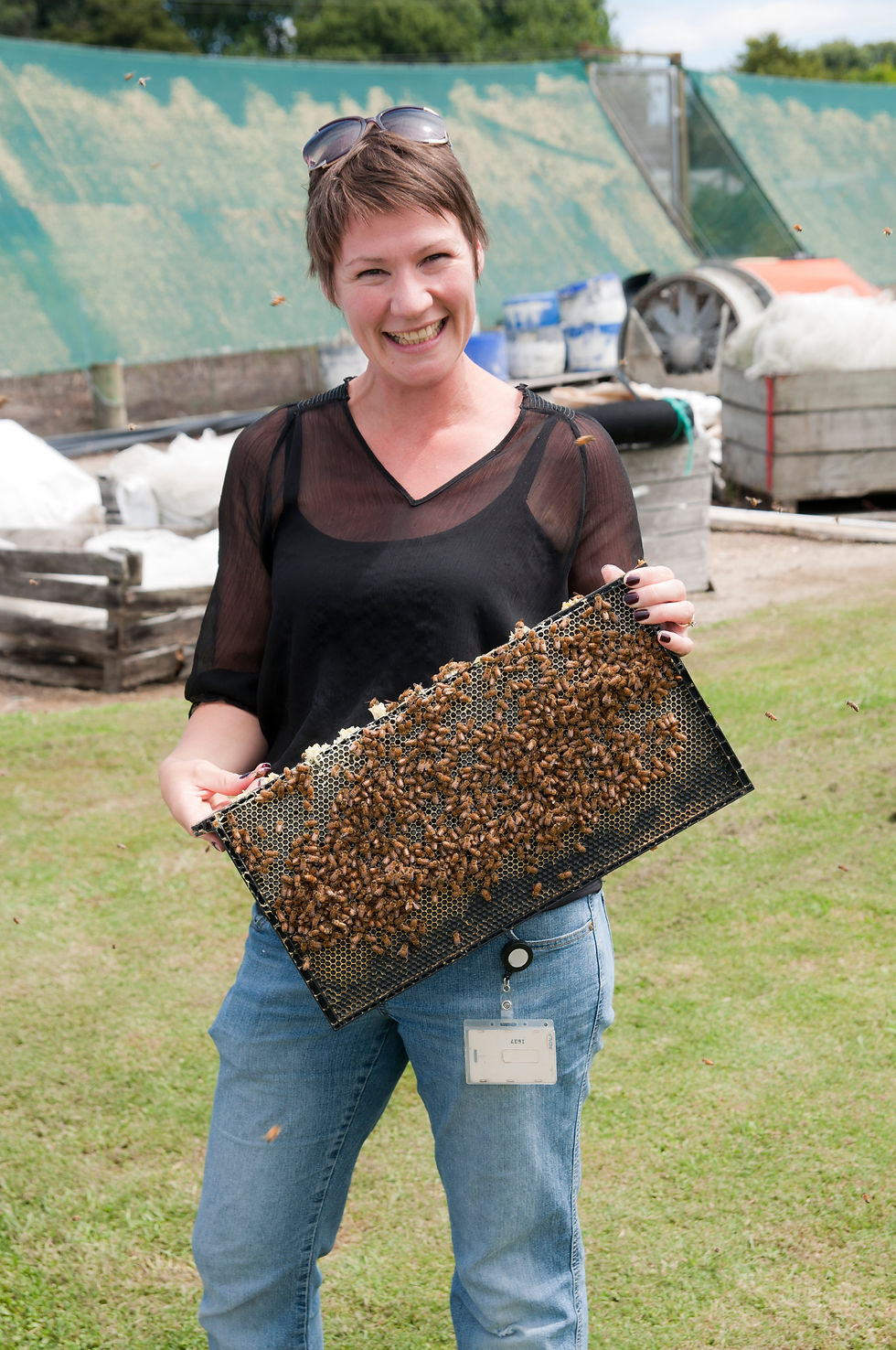Varroa Expert Encourages Beekeepers to Ask, Listen and Improve
- Patrick Dawkins

- Jun 2, 2022
- 3 min read
Updated: Jun 3, 2022
Beekeepers have a prime opportunity to improve their varroa management by attending and taking part in conversations at this year’s Apiculture New Zealand Conference, a leading scientist says. Michelle Taylor, who has been at the forefront of varroa research in New Zealand for the past 20 years, will host a panel discussion at the conference. With the destructive parasite an ever-increasing threat, two sessions – one on bee pests and diseases and then another specifically on varroa – are sure to be lively.
Gone are the days where beekeepers can treat for varroa “by the calendar”, Taylor says.
“Varroa is the most devastating honey bee pest in New Zealand. It is crucial beekeepers set time aside to think about how we are going to move away from set calendar treatments. The seasons now are not like they were 20 years ago, so we must think, how do we treat varroa now?” Taylor says.

The apiculture conference’s panel discussions can play an important role in answering that question for those who attend the June 29-July 1 event in Christchurch, the Plant and Food Research honey bee scientist believes.
During the morning session of day one Taylor will be joined on stage by colleague Dr James Sainsbury and keynote speaker Dr Samuel Ramsey, a leading figure in varroa research globally. The audience should already be warmed up to the panel discussion format by then, with an equally pertinent session on bee pests and diseases scheduled for early on day one. That will be headed by another keynote speaker, Dr Jamie Ellis of the University of Florida via video-link, along with Manaaki Whenua-Landcare Research’s Dr Pike Stahlmann-Brown and professor of ecology and entomology at Victoria University of Wellington Dr Phil Lester.
“These sessions are valuable because they firstly give beekeepers the opportunity to learn about varroa biology, then how to exploit it to control their populations. It also gives beekeepers the opportunity to ask questions; things like why they might be seeing limited varroa control, why they might be seeing it at certain times of year, or why, when they use certain products, that they don’t get as much control. Those are good questions to ask and, what can be done to mitigate hive losses?” Taylor says.
She is looking forward to the session – having been involved in many similar discussions throughout her research career – because they can practically benefit the many in attendance, not just the few who pose questions.

“The beekeepers sitting in the audience then get to hear about control methods that have and have not been successful. Then they can use their understanding of the varroa bio and population growth to think and plan their treatments for the next season.”
The Waikato-based scientist, who literally wrote the book on varroa in New Zealand (Control of Varroa: A Guide for New Zealand Beekeepers), encourages beekeepers to make use of the expertise of the Plant and Food Research team and approach their booth in the conference trade hall.
Drs Ellis and Ramsey will both present to conference on day one, as well as continue the open discussion format by hosting their own question and answer sessions on day two. During those sessions Taylor expects to join her fellow Kiwi beekeepers in the audience and learn from some experts.
“Every time we get an international speaker it enlarges our view. With varroa specifically it gives a much better understanding of what is going on overseas, in terms of varroa control, whether there is resistance occurring and what chemical products are being used or changed. New Zealand’s beekeeping industry is isolated, but we have done well to control varroa. Each time an international speaker comes we really have an opportunity to gain insight into the international world of beekeeping,” Taylor says, adding “their insights will give us hope for the future”.
That’s something New Zealand beekeepers fighting the ever-present issues of varroa mites and hive health can surely do with.







Comments